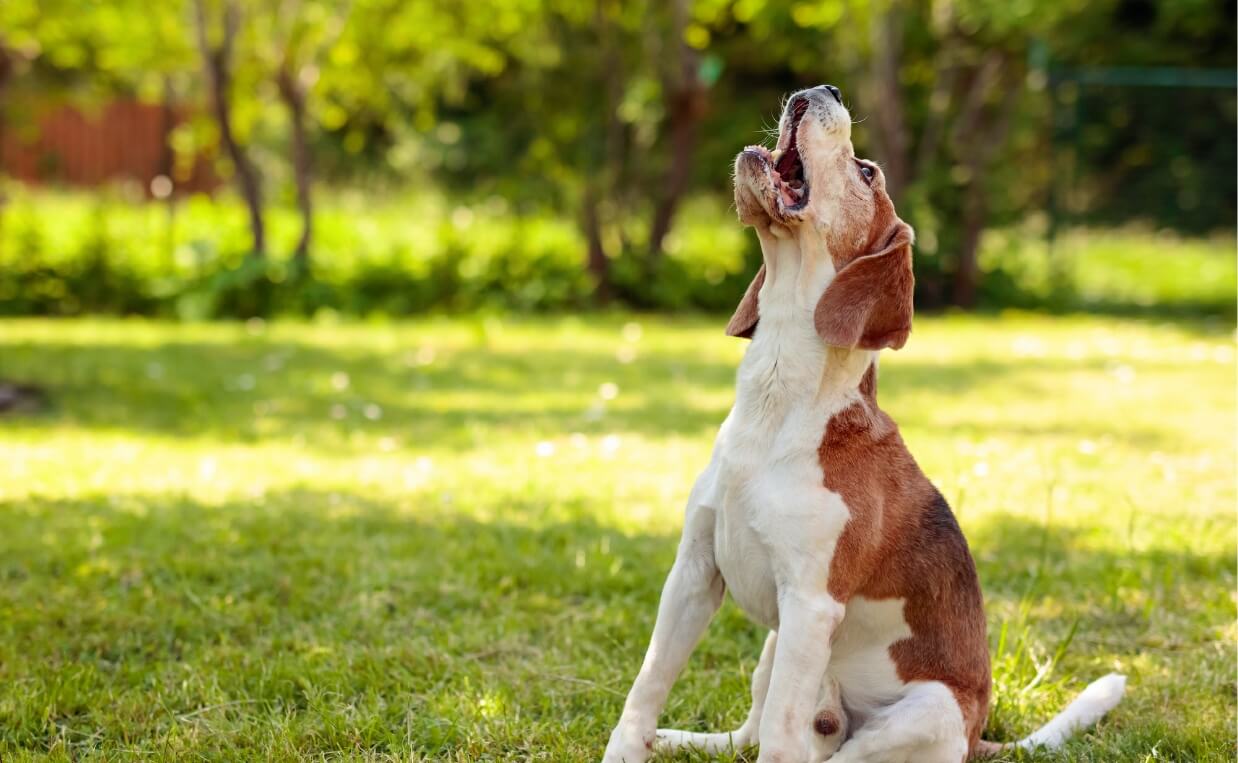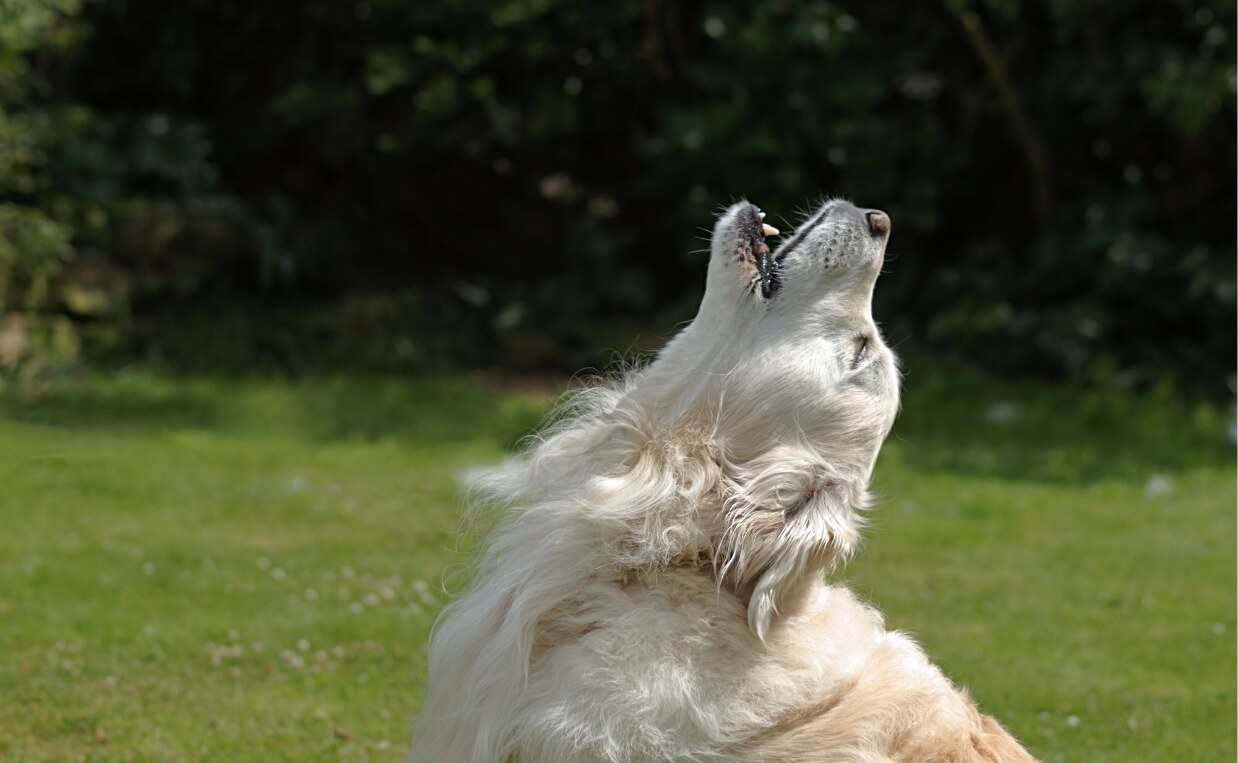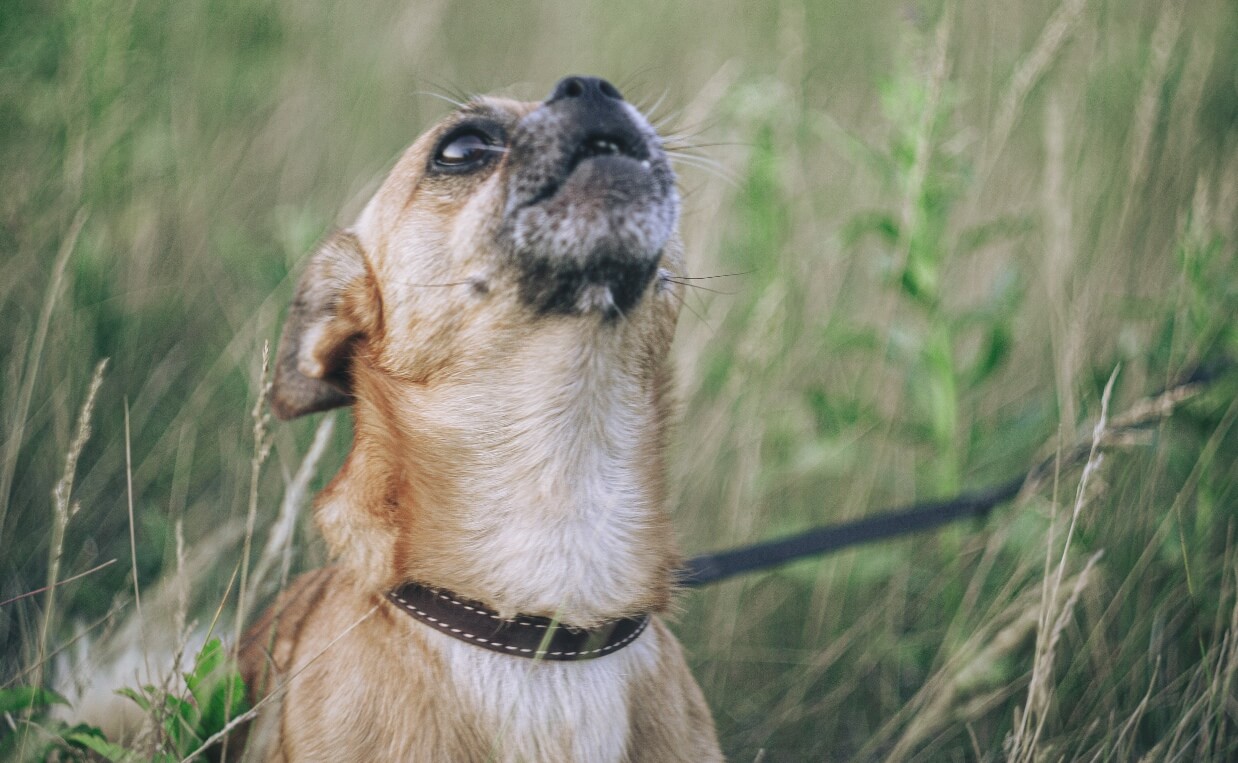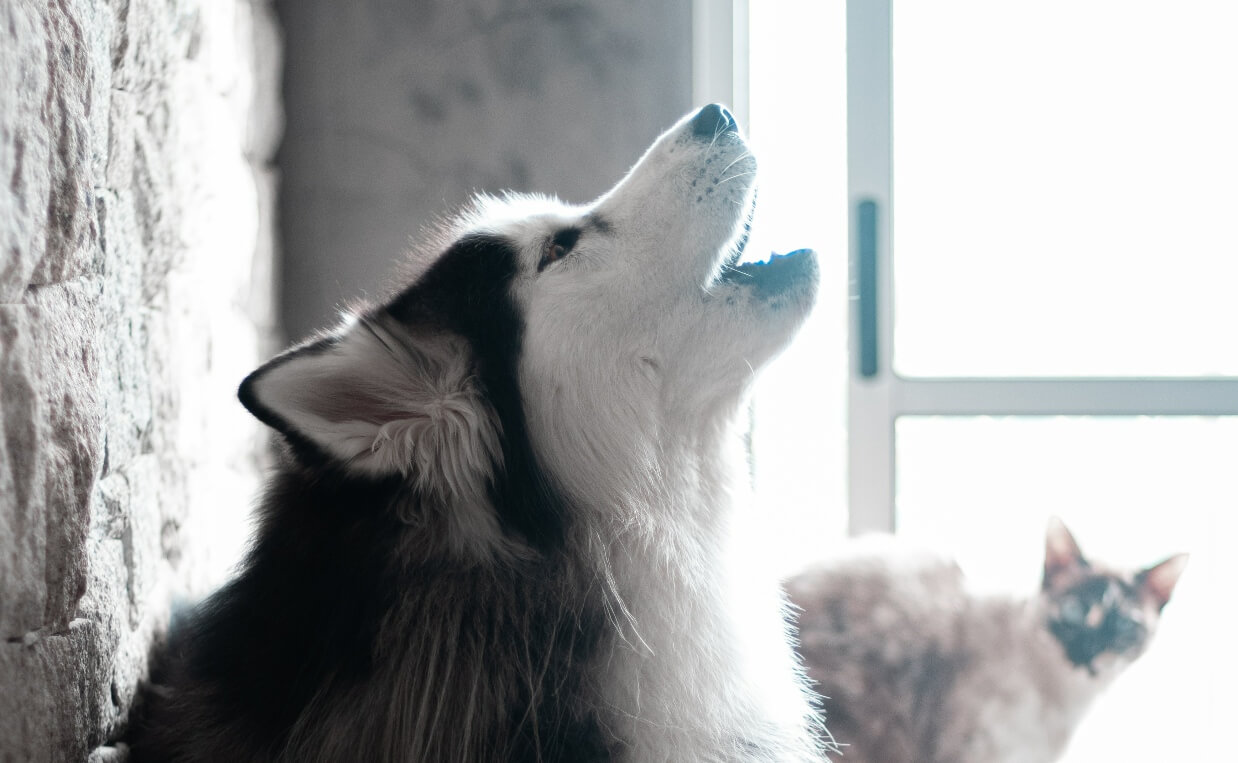
All dogs howl. Some howl a little, some a lot. Some have prolonged howls and some have shorter ones. But regardless of their breed, age or temperament, all dogs howl.
Why Do Dogs Howl?
You might have heard your dog howling and wonder why he or she is howling. Howling is a normal behavior in dogs originating in their ancestral roots. In the wild, wolves howled as a way to communicate with each other. It might be to announce their location to other members of their pack. It might be to warn other wild animals to stay away from their territory.
Your dog may not be howling as a way to let you know where they are or to keep intruders away, but it is still a form of communication. Since dogs are now a part of human families, understanding why dogs howl and what they are trying to communicate can help you respond in the best way possible.

What Are Dogs Saying When They Howl?
Here are 9 common reasons dogs howl. They may be:
-
Responding to high-pitched sounds
Many dogs howl as a response to high-pitched sounds, like a siren or music. Or it may be in response to another dog howling. Howling is a way for your dog to chime it and say, “I hear the sound and want to join in on the action.” Normally, dogs who are howling for this reason will stop when the sound stops. This type of howling usually isn’t a problem unless you live in an area where there are a lot of sirens and it bothers your neighbors.
-
Letting you know where they are
In the wild, a part of the canine pack will stay home while the rest of the pack goes scouting or hunting. Howling is a way for members of the pack to stay in communication with each other.
-
Helping you find your way home
After being left at home, a dog may howl when they hear you drive up to your house or see you coming home in an attempt to guide you safely back to them.

-
Warning intruders to stay away
Some dogs howl to keep intruders away from their territory. Howling signals to other animals that a particular area is already claimed and visitors aren’t welcome. Howling is a good defense mechanism to ward off potential predators. This is why dogs may howl when a stranger approaches their home.
-
Approaching another dog’s territory
On the flip side, an approaching dog may howl to alert other dogs they are approaching their home area. This vocal announcement prevents an incoming dog from startling current inhabitants of an area. Howling alerts another dog that someone is getting close to their environment.
-
Wanting your attention
Some dogs howl to communicate their need for attention. Often, this tactic works, so dogs keep doing it. If you suspect your dog is howling for attention, try to avoid eye contact and resist the urge to approach a howling dog. Once your dog quiets down, give him or her the attention he or she craves. To help your dog stop howling for attention, try to reward quiet behavior. Give attention or treats randomly when your dog is quiet and do not give in to howling.

-
Experiencing anxiety
Some dogs will howl when they experience anxiety, especially separation anxiety. Dogs can become very attached to their owners and can become very anxious when not with you. Howling due to anxiety normally ends when the owner comes home and the dog feels secure. Howling the entire time you are gone can be very annoying to the neighbors, so you may want to consider bringing your dog to daycare or boarding where your dog is busy having fun and enjoying the company of other dogs and humans they love and trust.
Learn more: 14 Best Dog Anxiety to Keep Your Dog Calm
-
Suffering pain
Dogs may howl in pain. If your normally quiet dog begins howling, he or she may be injured or in acute pain. People cry when they hurt, and dogs do too. Dogs will howl to vocalize pain. If you suspect this might be happening, bring your dog immediately to your veterinarian (or an emergency veterinary hospital) to rule out illness or injury.
-
Expressing excitement
Dogs in the wild will howl when they corner prey and domestic hunting dogs are trained to mimic this response. Family pets may not be trained hunters, but your dog may get excited when finding a new treasure in the backyard and may howl to tell you about it. Whatever the prize, your howling dog may be letting you know he or she is excited about a new discovery.

What to Do If You Don’t Know Why Your Dog is Howling
If howling is a new thing for your dog and you can’t pinpoint a reason for the vocalization, you may still be asking yourself, “Why does my dog howl?” If this happens, it’s time for a visit with your veterinarian. Your veterinarian can help determine if the howling is a symptom of a medical issue and help you make a plan for how to address the concern.
Does your dog howl? Can you pinpoint the reason your dog howls? Please share your experience with the Canine Campus community by leaving a comment below…

 Understanding the Meaning Behind Different Sounds Your Dog Makes
Understanding the Meaning Behind Different Sounds Your Dog Makes Does Your Dog Know You Love Him or Her? Here’s How to Tell
Does Your Dog Know You Love Him or Her? Here’s How to Tell 22 Odd Dog Behaviors and Want They Truly Mean
22 Odd Dog Behaviors and Want They Truly Mean Ways Your Dog Asks for Help: Understanding Canine Communication
Ways Your Dog Asks for Help: Understanding Canine Communication Why Do Dogs Chase Their Tails?
Why Do Dogs Chase Their Tails?






Leave a Reply